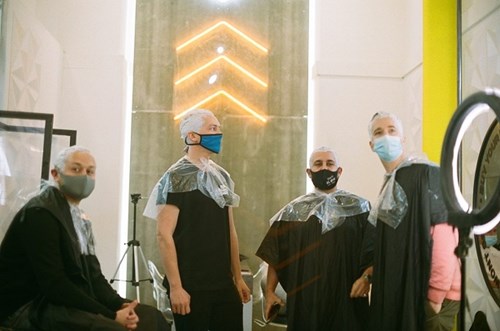Breaking the Silence: Young People and the Mental Health Crisis
Date: Tuesday 08 Jul 2025
“Young people are growing up worried about many aspects of their lives, from insecure employment and housing through to Covid and climate change. Young people may have been one of the one groups whose mental health was most affected by Covid,”
Rises in rates of anxiety, depression and other disorders have led to one in four young people in England having a common mental health condition, a new NHS survey shows.

Here in the quiet of the Third Space, we can take a moment to reflect on the weight of these findings. The NHS survey paints a stark picture of the mental health landscape for young people in England—a reality that feels both urgent and deeply personal. One in four young people now lives with a common mental health condition. That’s not just a statistic; it’s a classroom, a football team, a group of mates where someone is quietly struggling.
“The nation’s mental health is deteriorating and our current system is overwhelmed, underfunded and unequal to the scale of the challenge. After the trauma of the pandemic, the relentless cost of living crisis and persistent racial inequalities, it is no surprise that mental health has suffered – especially for the young. But it is unacceptable that services still aren’t meeting people’s needs.”
The rise in mental ill health among young women stands out, with rates more than double those of young men. It’s a reminder that while mental health challenges touch everyone, they don’t do so equally. For young men, the numbers may be lower, but the silence can be louder. It’s not that the struggle isn’t there—it’s that it often goes unspoken, unseen, and unshared.
The survey also highlights the broader pressures young people are carrying. From the shadow of the pandemic to the weight of climate anxiety and economic uncertainty, it’s no wonder mental health is fraying. These aren’t just abstract issues; they’re lived realities that shape how young people see themselves and their futures.
The study also found sharp increases in overall prevalence of mental ill health, suicidal thoughts and self-harm across age groups:
- More than a fifth (22.6%) of adults aged 16 to 64 have a common mental health condition, up from 18.9% in 2014.
- More than one in four adults (25.2%) reported having had suicidal thoughts during their lifetime, including about a third of 16- 24-year-olds (31.5%) and 25- to 34-year-olds (32.9%).
- Self-harm rates have quadrupled since 2000 and risen from 6.4% in 2014 to 10.3% in 2024, with the highest rates among 16- to 24-year-olds at 24.6%, especially young women at 31.7%.
What’s heartening, though, is the growing awareness and willingness to seek help. Nearly half of those with common mental health conditions are now accessing therapy or medication. That’s progress, but it’s not enough. More than half still aren’t getting the support they need, and the system itself is stretched to breaking point. As Marjorie Wallace of Sane puts it, the scale of need is overwhelming a system already in crisis.
For young men, this gap in support can feel even wider. The cultural expectation to “man up” or “get on with it” often leaves little room for vulnerability. But here’s the thing: strength isn’t about silence. It’s about showing up for yourself, even when it’s hard. It’s about recognising that needing help doesn’t make you weak—it makes you human.
“This report exposes the huge scale of need facing a system that is already in breakdown, particularly involving the services available to young people.”
The government’s push for digital access to mental health services is a step in the right direction. Self-referral options and online therapies could lower barriers for those who might hesitate to seek help in person. But as Dr Sarah Hughes of Mind points out, the system needs more than digital fixes. It needs sustained investment, equity, and compassion to meet the scale of the challenge.
So where does that leave us? Perhaps it’s here, in spaces like this, where we can start to shift the narrative. Where young men can begin to see that it’s okay to not be okay. Where we can talk about mental health not as a weakness, but as a part of being alive. And where we can remind each other that no one has to face this alone.
If this resonates with you, take a moment. Breathe. And if you feel ready, reach out—whether it’s to a mate, a family member, or a service like Brothers in Arms. Because even in the hardest moments, there’s always a way forward. What’s on your mind today?
Read more about the survey here: https://www.theguardian.com/society/2025/jun/26/young-people-england-common-mental-health-conditions-nhs-survey
If you have more questions about young men's mental wellbeing, then have a chat with Braveheart below.

